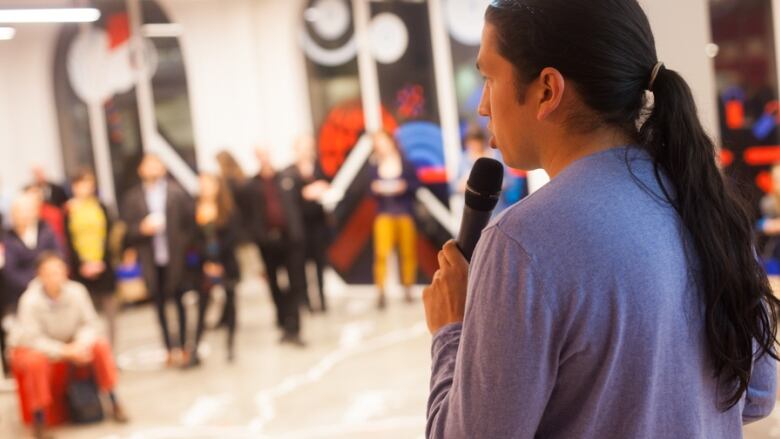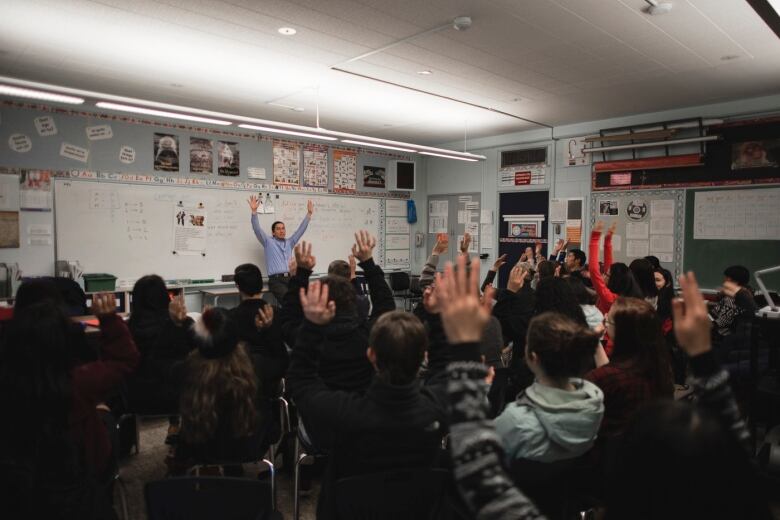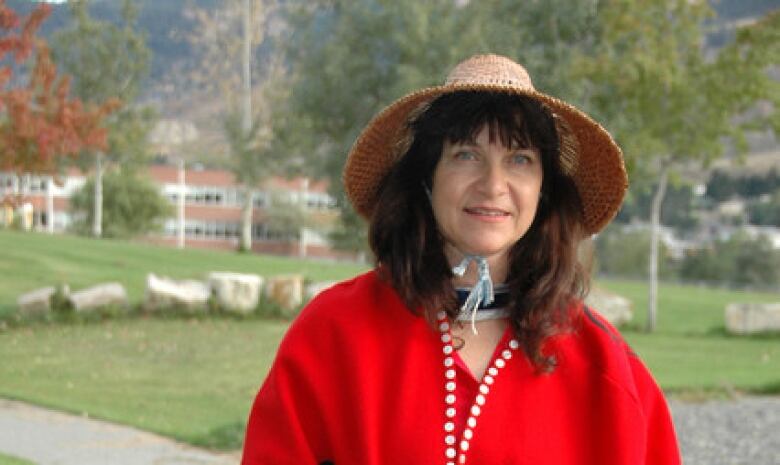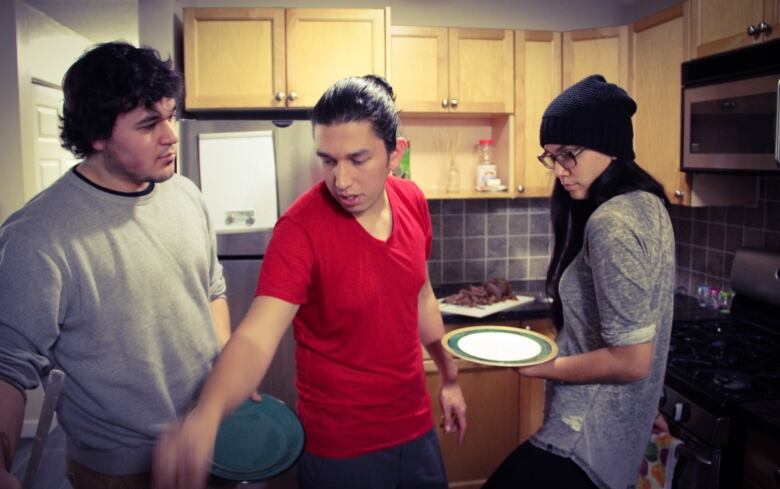Skwomesh language activist to launch 'trailblazing' immersion course at B.C. university
Students to be taught indigenous language 5 days a week at Simon Fraser University

A young man's determined efforts to revive his ancestral language which started with grassroots language nights in his father's home five years ago reached a new milestone this weekwith the announcement that he'll be leading a full-time adult immersion program for the Skwomesh language at Simon Fraser University inSeptember.
"My heart just soars when I have opportunities to speak to others in my language. Right now, I don't have enough people," says26-year-old Khelsilem (his traditional Skwomesh name).
The program would like to have15students learning Skwxw7mesh snchim(the 7 represents a glottal stop or a slight pause) or in English,theSkwomeshlanguage seven hours aday, five days aweek.

Khelsilem will be one of two lead instructors of the program, which is now accepting applicants. After completing 1,000 classroom hours, students graduate with a certificate in First Nations language proficiency.
It's modeled after similar indigenous language programs in Canada and New Zealand. Khelsilem says he was inspired by a trip to the community of Kahnawake in Quebec, where he learned about Mohawk immersion efforts.
"I was able to see how many years of running an adult immersion program has created a community of language speakers that permeates through many institutions in the community, whether schools, community centres, hospital, daycares or administrative centres," says Khelsilem.
"When I saw that, it was clear to me what was really needed in my community."
TheSquamishNation has a population of 4,000 members with a vast traditional territory that ranges from North Vancouver to the city of Squamish, 60kilometres north of Vancouver.
Buta 2014 report on the status of B.C. First Nations languages listed Skwxw7meshsnchimas "critically endangered," with only seven fluent speakers remaining.
Immersion-based approach
Until now, the options for Squamish Nation members interested in learning the language have been limited toSkwomeshclasses in local elementary and high schools. There are also evening classes for adult learners, which are university-accreditedbut sporadic. Khelsilem says a few hours a week of language instruction can't turn a student into a language speaker.
"You might become knowledgeable in aspects of the language, but it won't make you into a conversational speaker that can talk to fluent speakers, or describe events, peopleand locations."

Professor Marianne Ignace, thedirector of SFU's First Nations Language Centre, believes the Skwxw7mesh snchim immersion project has exciting prospects for revitalizing the language.
It's a trailblazing project (in British Columbia)," says Ignace, acommunitymember of the Skeetchesen First Nation and fluent speaker of secwepemctsin.
"We know in our hearts it's nearly impossible for somebody who studies their First Nations language at the pace of two to three hours aweekand they need to pump in 1,000 hours to get good at it."
SFU has certified over 200 students in 15 indigenous languages over the past two decades, says Ignacebut only recently began offering opportunities to learn in immersion settings.
The centre ran a four-month immersion "boot-camp" for the Haida language in Haida Gwaii last winter. It's also piloting a "language house" project with the Osoyoos First Nation and Penticton Indian Band, immersing 15 students in the Okanagan language, known as nsyilxcen, for two-days per week.
"We can see how much faster learners are able to progress, if it's the full-time immersion based approach," says Ignace.
"It's hard to sustain that energy, but we're losing our elders so fast. We're in a desperate situation to produce intermediate and advanced speakers as fast as we can."
Funding indigenous language learning
Khelsilem, a semi-fluent speaker of Skwxw7mesh snchim, began learning from cassette tapes as a teenager. Once he became more proficient, he launched an online language blog in 2011, designed to reach and teach SquamishNation members in any location with his self-designedpodcasts andYouTubevideos.
That evolved into a Language House, where three residents lived and spoke Skwxw7mesh snchimdaily.

All these efforts were do-it-yourself volunteer affairs, supplemented with contributions from crowdfunding campaigns. But Khelsilem says he recognizes the key to developing a community of language speakers is to make it financially viable for language students.
"A couple ofpostcommunity members have indicated their boss would give them a year leaveofabsence to take the program, but they won't be earning income during that time. We want to make language learning financially accessible to people."
The partnership with Simon Fraser University means students who are First Nation members will be eligible to apply for post-secondary funding to cover tuition costs, as well as a monthly living allowance.
Khelsilem has founded a not-for-profit organization called Kwi Awt Stelmexw, hoping to raise $30,000 for student scholarships, and plans to hold a gala fundraiser this March in North Vancouver.












_(720p).jpg)


 OFFICIAL HD MUSIC VIDEO.jpg)
.jpg)



























































































